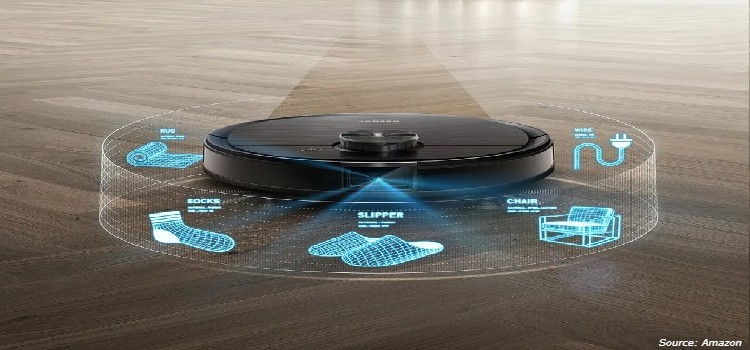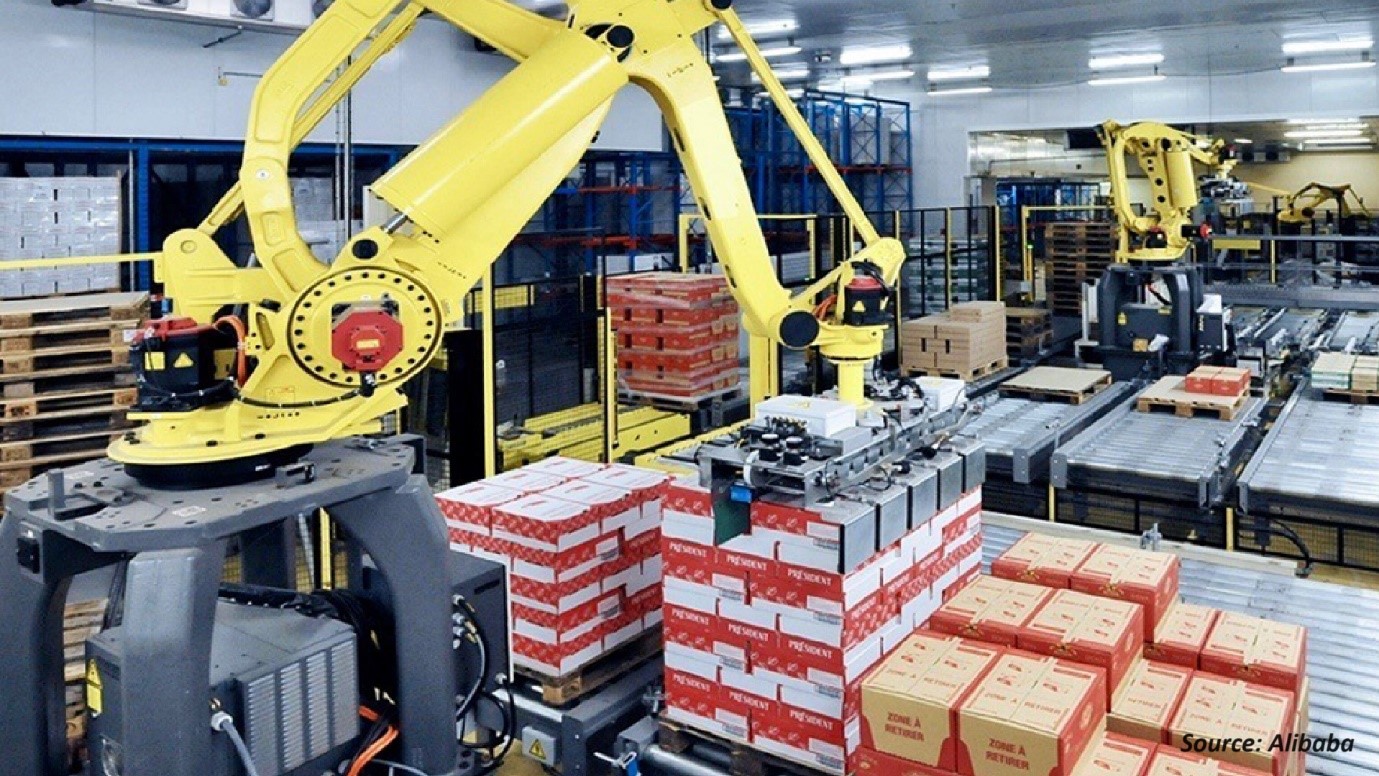
Australia Delta Robots Market by Axis Type (Double Axis, Three Axis, Four Axis, Five Axis, and Six Axis), by Payload Capacity (Up to 3 Kilogram, 3.1 to 8 Kilogram, 8.1 to 15 Kilogram, and More than 15 Kilogram), by Version Environment (Standard and Hygiene), by Application (Assembly, Pick & Place, Material Handling, Palletizing/Packaging, and Others), by Industry Vertical (Electronics, Cosmetics, Food & Beverages, Pharmaceuticals, and Others) – Opportunity Analysis and Industry Forecast, 2023–2030
Industry: ICT & Media | Publish Date: 11-Oct-2023 | No of Pages: 76 | No. of Tables: 59 | No. of Figures: 28 | Format: PDF | Report Code : N/A
Market Definition
Australia Delta Robots Market was valued at USD 5.47 million in 2022, and is predicted to reach USD 16.56 million by 2030, with a CAGR of 13.87% from 2023 to 2030. Delta or parallel robots are highly specialized robotic systems characterized by their unique mechanical structure and exceptional precision. These robots have three or more arms connected to a common base, forming a parallel mechanism that gives exceptional precision and structural stability.
Delta robots are renowned for their remarkable speed, agility, and accuracy, making them ideal for a wide range of high-speed, precision applications in manufacturing, electronics, food & beverage, pharmaceuticals, and others.The design of delta robots allows them to move with incredible precision in all three dimensions, such as assembly lines, pick-and-place operations, and intricate manufacturing processes. Making them particularly well-suited for tasks involving pick and place, assembly, packaging, and material handling.
Their parallel kinematic structure, a robotic system design where multiple limbs work parallel to control end-effector motion, enabling precise coordination and control, provides superior rigidity and stability, ensuring consistent and reliable performance. Depending on their specific configuration, they can handle various payloads, ranging from lightweight items to heavier components.
Thus, delta robots are a class of robotic systems renowned for their speed, precision, and versatility. Their unique parallel structure, including rigidity, speed, and stability, makes them a preferred choice for various high-speed automation tasks across multiple industries, contributing to increased efficiency and precision in modern manufacturing and assembly processes.
Delta Robots Transforming Australia's Food and Beverage Manufacturing Industry
The leading industry in Australia is the food and beverage manufacturing industry, contributing about 4% to Australia's GDP. Food and beverage manufacturing includes all processed, packaged, shelf-ready food and beverages commonly available in supermarkets and other retail outlets. It also includes manufacturing meat and meat products, processed seafood, dairy, processed fruit and vegetables, oils and fat, grain mill and cereal products, bakery products, sugar and confectionery, beverages, and tobacco.
Australia's extensive food and beverage industry heavily depends on delta robots as advanced automation solutions that enhance production efficiency, streamline packaging processes, and ensure precision in handling delicate food items, ultimately contributing to increased productivity and product quality. Thus, it is expected to drive the growth of the market.
Government-Led Initiatives Bolstering Growth in the Food and Beverage Industry in Australia
The rising government initiatives in terms of increasing the production of the food and beverage industry, in turn, boost the market growth. For instance, in March 2021, the Australian government introduced grant applications for the fourth National Manufacturing Priority sector, focusing on food and beverage. Simultaneously, they have unveiled a comprehensive 10-year roadmap for this sector.
These grant opportunities are a pivotal component of the government's Modern Manufacturing Initiative (MMI) and are specifically designed to empower Australian food and beverage manufacturers. The grants aim to support these manufacturers in up scaling their production capabilities, facilitating the commercialization of innovative products and operational processes, and fostering seamless integration into domestic and global supply chains.
Lack of Local Manufacturing and Global Initiatives Hinders Market Growth in Australia
In Australia, the growth of the delta robot market faces obstacles primarily due to the absence of local manufacturers within the country. The manufacturers struggle to introduce new delta robot products, which in turn is hindering innovation in the domestic market.
Furthermore, the limited involvement of global key market players in the country has resulted in a scarcity of substantial initiatives to drive the adoption and advancement of delta robot technology. These factors collectively impede the market's expansion, underscoring the need for a more robust ecosystem to foster delta robot innovation and market growth in Australia.
Integration of Advanced Technologies to Enhance Precision Represents a Significant Opportunity for the Market
Integrating advanced technologies, such as computer vision and artificial intelligence (AI), to enhance precision represents a significant opportunity for the delta robot market. These cutting-edge technologies enable delta robots to operate more accurately and efficiently, opening up new avenues for applications across various industries.
The integration of computer vision and AI not only enhances precision but also improves overall productivity and reduces errors in manufacturing processes. This can result in cost savings, higher product quality, and increased competitiveness for businesses that leverage delta robots with these advanced technologies.As industries continue to embrace automation and demand higher precision and flexibility, the delta robot market is poised to benefit significantly from the opportunities created by integrating computer vision and AI.
Competitive Landscape
The Australia delta robots industry includes several market players such as ABB Ltd., Fanuc Corporation, Kawasaki Heavy Industries Ltd, Yaskawa Electric Corporation, FESTO, Weiss GmbH, Omron Corporation, IGUS GmbH, Cama Group, and KUKA AG.
Key Benefits
-
The Australia delta robots market report provides a quantitative analysis of the current market and estimations through 2023-2030 that assists in identifying the prevailing market opportunities to capitalize on.
-
The study comprises a deep dive analysis of the market trend including the current and future trends for depicting the prevalent investment pockets in the market.
-
The information related to key drivers, restraints, and opportunities and their impact on the market is provided in the report.
-
The competitive analysis of the market players along with their market share in the Australia delta robots market.
-
The SWOT analysis and Porter’s Five Forces model are elaborated in the study.
-
Value chain analysis in the market study provides a clear picture of the stakeholders’ roles.
Australia Delta Robots Market Key Segments
By Axis Type
-
Double Axis
-
Three Axis
-
Four Axis
-
Five Axis
-
Six Axis
By Payload Capacity
-
Upto 3 Kilogram
-
3.1 to 8 Kilogram
-
8.1 to 15 Kilogram
-
More than 15 Kilogram
By Version Environment
-
Standard
-
Hygiene
By Application
-
Assembly
-
Pick & Place
-
Material handling
-
Palletizing/ Packaging
-
Primary
-
Secondary
-
- Others
By Industry Vertical
-
Electronics
-
Cosmetics
-
Food & Beverages
-
Pharmaceuticals
-
Others
Report Scope and Segmentation:
|
Parameters |
Details |
|
Market Size in 2022 |
USD 5.47 Million |
|
Market Volume in 2022 |
251 Units |
|
Revenue Forecast in 2030 |
USD 16.56 Million |
|
Growth Rate |
CAGR of 13.87% from 2023 to 2030 |
|
Analysis Period |
2022–2030 |
|
Base Year Considered |
2022 |
|
Forecast Period |
2023–2030 |
|
Market Size Estimation |
Million (USD) |
|
Growth Factors |
The thriving food and beverage industry. Rising government initiatives. |
|
Companies Profiled |
10 |
|
Market Share |
Available for 10 companies |
|
Customization Scope |
Free customization (equivalent up to 80 working hours of analysts) after purchase. Addition or alteration to country, regional, and segment scope. |
|
Pricing and Purchase Options |
Avail customized purchase options to meet your exact research needs. |
Key Players
-
ABB Ltd.
-
Fanuc Corporation
-
Kawasaki Heavy Industries Ltd.
-
Yaskawa Electric Corporation
-
FESTO
-
Weiss GmbH
-
Omron Corporation
-
IGUS GmbH
-
Cama Group
-
KUKA AG




 Speak to Our Analyst
Speak to Our Analyst


































